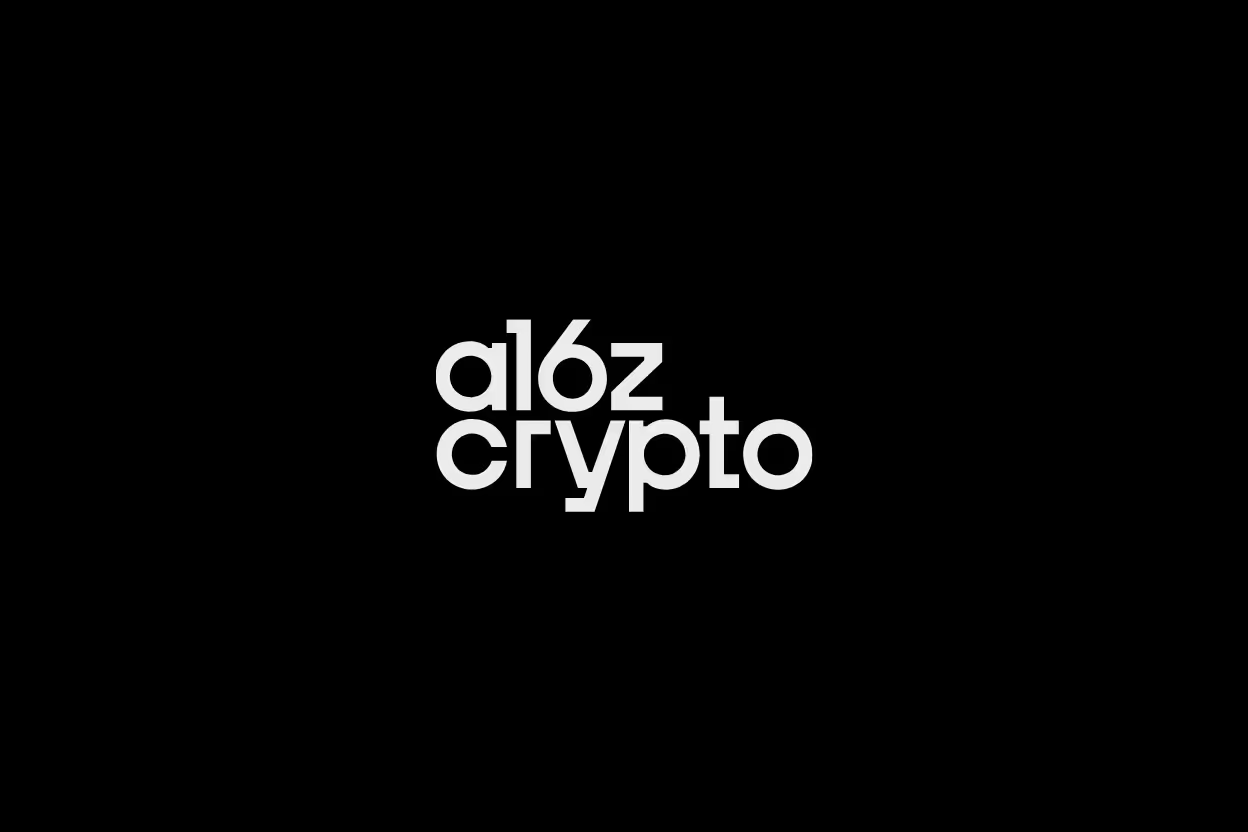a16z Crypto has become a trusted partner for top blockchain founders, bringing structure to how Web3 teams attract and develop talent. Winning in crypto isn’t just about code; it’s about building mission-driven teams and setting up smart foundations from the start. For founders, the difference between a promising experiment and a lasting crypto company often comes down to people, process, and the principles behind both.
This guide gives a close look at the a16z Crypto hiring playbook, focusing on what matters most: making better early hires, scaling talent operations, and shaping team structure as projects grow and decentralize. You'll learn how world-class Web3 teams align mission and execution, balance community values with performance, and build for resilience in a fast-changing space. What are the biggest hiring pitfalls in Web3? How do you attract the right mission-driven talent? Why is progressive decentralization a must for the next wave of blockchain startups? By exploring a16z's approach, you'll get actionable steps and fresh perspective for growing your own crypto team.
Why Mission-Driven Hiring Outperforms Pay-Driven Strategies in Web3
Web3 startups live at the sharp edge of risk and reinvention. Here, a strong mission isn’t just a banner on a website—it’s the magnetic force that brings real believers on board. While big salaries still draw attention, a16z Crypto has proven that mission-driven hiring creates stronger, more loyal, and more effective teams. If you’re building in blockchain and wondering why some projects survive chaos while others wilt, look at how they hire. Projects that win focus on shared purpose, not just paychecks. Wondering what qualities a16z looks for when evaluating Web3 talent? Let’s break down the traits that matter most.
Traits That Set Web3 Talent Apart: Curiosity, Adaptability, and Resilience
Not all talented engineers or builders succeed in crypto. The best fit for Web3 bring more than technical skills—they share a mindset that helps them weather uncertainty and drive real impact.
a16z prioritizes candidates who show:
- Curiosity: Web3 changes by the week. Blockchain protocols update, security threats emerge, and the rules get rewritten in real time. Top hires aren’t afraid to ask questions, learn new concepts, or challenge the status quo. They read protocol docs on a Sunday night for fun. They join Discords to understand the latest memes and trends. Without natural curiosity, even the sharpest developer gets left behind.
- Adaptability: Web3 startups sometimes pivot fast. Regulations shift. Tokenomics get rebuilt overnight. The ability to switch gears, solve new puzzles, and experiment quickly is more valuable than specific credentials. a16z looks for people who thrive when things aren’t set in stone. Are you comfortable with ambiguity? Can you switch from coding to answering community questions? These are daily realities for effective crypto teams.
- Resilience: Crypto can be brutal. Hacks, network downtime, or sharp market swings happen. Setbacks are public and spread quickly across Twitter or Discord. Teams that survive don’t hide from failure—they analyze, share lessons, and bounce back stronger. Resilience means handling stress, keeping your head in the game, and maintaining trust with your community even after setbacks.
Why do these traits matter so much for blockchain startups?
- Ownership culture: In decentralized teams, you don’t wait to be told what to do. Mission-driven hires act as owners. They fill gaps, step up, and rally others—especially when stakes are high.
- Community trust: Web3 founders live in public. Communities reward transparency, honest problem-solving, and open dialogue. Teams need people who respect that high-trust environment.
- Continuous change: As protocols and platforms change, only those who stay curious and adaptive can contribute effectively. These traits keep the team moving forward, not stuck in old ways of thinking.
What does this mean for VCs or Web3 founders hiring today? Don’t just chase top pay or resume lines. Look for candidates who’ll obsess over the mission, welcome chaos as a growth opportunity, and inspire trust when things get rough. That’s the real a16z Crypto advantage in building Web3’s next big teams.
Building a Team for Each Stage: Generalists First, Specialists Next
Every successful Web3 company grows through a cycle: first, a team of flexible problem-solvers, then a deep bench of experts as complexity and scale kick in. The a16z Crypto playbook champions this phased hiring approach. You start with adaptable builders who wear many hats, then transition to focused specialists who propel growth and stability. So, why this order, and how does it set your startup up for long-term success? Let’s dig into how generalists and specialists each play their part.
The Benefits of Generalists in Early-Stage Startups
Early in your startup, speed, adaptability, and resourcefulness decide your fate. That’s why generalists thrive here. These are people who juggle design, code, marketing, and even community in a single day. In Web3, where priorities shift with every new protocol or regulation, this trait is gold.
Why favor generalists at the beginning?
- Versatility: Generalists cover gaps between roles. With a small team and tight runway, you can’t hire for every specialty. Someone who can debug smart contracts, draft a blog post, and run a product demo keeps things moving.
- Cost efficiency: Hiring one strong generalist often beats hiring multiple specialists. Startups get more mileage when every hire can contribute to several projects or domains.
- Rapid iteration: New blockchain products demand fast feedback and constant pivots. Generalists switch gears without friction, whether chasing a new funding lead or handling unexpected bugs on launch day.
- Better communication: Generalists often connect dots between technical and non-technical stakeholders. They help translate complex blockchain concepts for investors, partners, or early users, which is critical for raising funds and attracting early supporters.
- Innovation: Their mix of skills leads to creative solutions. Need someone who thinks outside the box on tokenomics, UX, and developer onboarding? Your early generalist is usually your best bet.
You might wonder, don’t you risk spreading talent too thin? That’s a fair point. The key is to set clear roles, avoid daily overload, and nurture team culture so generalists stay engaged and don’t burn out. Early on, look for curiosity, problem-solving, and a comfort with ambiguity—a few stand-out traits that often predict success in these roles.
Specialists for Scaling and Operational Excellence
As your protocol gains traction, you’ll face new demands: more users, bigger codebases, regulatory scrutiny, and a 24/7 global audience. That’s when it’s time to add specialists to the mix. The move from generalist to specialist is not a luxury—it’s required for scaling safely, efficiently, and credibly.
Where do specialists shine in a growing Web3 company?
- Technical depth: Complex smart contracts, security audits, cross-chain architecture—these demand blockchain engineers or cryptographers with deep expertise. A generalist can light the spark; specialists keep the product robust.
- Sales and community operations: Outsourced sales professionals (think SDR teams) can kick-start outreach and bring discipline to funnel management, something most early teams lack the time or background for.
- Regulatory compliance and legal frameworks: As things scale, legal counsel and compliance roles become indispensable. With stricter rules around tokens and DeFi protocols, having a specialist who “gets” the latest laws saves you from costly mistakes.
- Developer relations (DevRel): Building successful Web3 projects hinges on onboarding developers, hosting hackathons, and cultivating open-source tooling. Dedicated DevRel specialists translate tech into community buzz and lasting developer adoption.
- Process and structure: Specialists in product management, marketing, and data analytics establish sustainable processes, track KPIs, and optimize the company’s growth engine.
Many founders ask, when’s the right moment to hire specialists? If you see engineers or product folk splitting time on things far outside their strengths—or the team is struggling with consistency or quality—it’s a sign to bring in experts. Adding specialists means your generalists can get back to their sweet spots, and your team can focus on big levers for growth.
By blending the all-hands energy of generalists with the focused impact of specialists, a16z-backed startups build organizations that are nimble at the start and resilient at scale.
Embedding Talent Acquisition: Why Early Hiring of Recruiters Matters
Many founders focus first on engineers and product leads, but in Web3, bringing in a skilled recruiter early can push your project miles ahead. The hiring market for blockchain talent is fierce. Top protocols snap up experienced builders almost overnight, and strong recruiting isn’t an afterthought—it’s part of your growth engine right from the start. If you wait until after launch or Series A to build out your recruiting muscle, you risk missing out on great hires and letting competitors catch up. Early recruiters do much more than schedule interviews; they help shape your values, lay out long-term hiring funnels, and ensure no mission-critical position sits unfilled.
Founders often ask: At what stage should I hire a recruiter? What makes someone great at hiring in this niche? What happens if we wait too long to invest in our own talent funnel? The answers have huge implications for your team’s ability to move fast and attract the right mission-driven builders. Here’s what to look for and how to avoid costly mistakes.
How to Evaluate a Recruiter in Web3
Hiring a recruiter in Web3 isn’t like hiring for traditional tech roles. The playing field is different, and so are the required skills. Here’s what to look for when evaluating recruiters for your team:
Deep Blockchain Knowledge:
- Understands Core Tech: Can they talk in detail about blockchain protocols, smart contacts, tokenomics, or security? Generalist recruiters will struggle to judge Web3 hard skills.
- Crypto Economics Acumen: Familiarity with token-based incentives, governance, and decentralized business models is a must. The best recruiters know which skills transfer from Web2 and which don’t.
- Up-to-Date Insight: The crypto job market changes fast. Can your recruiter discuss layer-2 scaling trends, ZK proofs, or interoperability innovations? Are they staying current in Discord groups and Twitter threads?
Network Strength and Community Presence:
- Active in Key Hubs: Does the recruiter have a visible presence in places like GitHub, Discord, and major hackathons? This is often how passive candidates get sourced.
- Access to Niche Talent Pools: Are they connected to communities like CryptoJobsList, Ethlance, or DAO contributor boards? A wide reach helps fill roles faster and with higher-caliber candidates.
Proven Hiring Process and Innovation:
- Role-Specific Assessments: Can they deliver coding challenges, work simulations, or tailored screening frameworks specific to DeFi, NFTs, or decentralized infrastructure?
- Structured Interviews: Does their process test both hard skills and “crypto culture fit”? Competency-based, repeatable interviews beat simple resume walk-throughs every time.
- Remote-First Fluency: Most Web3 projects run as distributed teams. Recruiters should know how to evaluate communication style, async collaboration skills, and add transparency to comp negotiations (including crypto or equity packages).
Track Record and Adaptability:
- Measured by Results: Ask about metrics: How many hires have they made in Web3 in the past year? What’s their average fill time? What’s the retention rate after a year?
- References in the Space: Can they offer founder references, or testimonials from teams like DAOs, DeFi apps, or infrastructure protocols? Names and numbers matter.
Cultural Understanding:
- Mission-Driven Evaluations: Do they know how to screen for purpose-driven builders vs mercenary job hoppers?
- Diversity Awareness: Are their processes set up to look for talent outside of mainstream university networks, bringing in global, community-centric candidates who live open-source?
To make sure you’re working with a recruiter who truly “gets it,” try this checklist:
- Can they break down complex protocol requirements into clear job specs?
- Do they provide scenario-based questions or live project demos as part of their screen?
- Are they transparent about compensation, role design, and remote work policies from the start?
A strong Web3 recruiter won’t just fill open roles—they’ll become a key voice in your team-building playbook and help founders sidestep costly hiring mistakes. In a space where each hire shapes not just company culture but protocol direction, embedding the right recruiting talent early is a decision you can’t afford to delay.
Shaping Culture and Leadership for Growth and Uncertainty
Web3 founders face a wild mix of rapid innovation, unclear rules, and the push to decentralize. Yet, the way you shape your company’s culture and lead through uncertainty will define your talent’s effectiveness and loyalty. The strongest a16z-backed teams don’t just adapt to change—they welcome it by building trust, clarity, and shared ownership into their DNA. Does your team operate with true transparency? Are leaders creating space for healthy risk-taking? How do you keep people motivated when everything can shift overnight? Let’s explore the core practices that set top crypto teams apart.
Building a Growth Mindset Culture
In Web3, software and strategy change all the time. Teams that get stuck in old habits or fear mistakes fall behind. Strong founders nurture a culture where learning from uncertainty isn’t just tolerated—it’s expected.
- Encourage open experimentation: Let your team suggest new tools, try out process changes, or test smart contract upgrades even if not every idea works out.
- Celebrate mistakes as data points: Make it safe for people to admit what went wrong. Review post-mortems together. Build muscle memory for “failing forward.”
- Normalize continuous learning: Invest in workshops, online courses, and peer-to-peer sessions. People should grow with the project and sharpen skills as new tech arrives.
When the market swings or a protocol hits a snag, teams with a growth mindset rally fast. They pivot, they talk openly, and they see rough patches as chances to regroup. If you’re wondering why some DAOs remain strong while others crumble at the first crisis, often the answer is their culture around uncertainty.
Cultivating Adaptive, Decentralized Leadership
Leadership in Web3 isn’t about hierarchy. Founders must switch from “top-down decisions” to “distributed ownership.” As you scale, putting real power in the hands of your team and community becomes essential.
- Adopt transparent decision-making: Use public forums, regular AMAs, and Discord town halls so everyone understands how calls are made. This reduces infighting and builds trust.
- Set clear goals, delegate authority: Define outcomes, then let teams choose their path. For example, a smart contract audit doesn’t need seven approvals—give specialists the room to own it.
- Lean on DAO governance where possible: Token votes, working group proposals, or even rotating leads all boost inclusive problem-solving. The most successful projects let contributors drive and shape the direction.
Still, decentralized leadership brings its own challenge: who steps up when stakes are high? Founders set the tone by communicating often during setbacks and being transparent even when it’s uncomfortable. If you model this, your team will learn to do the same.
Fostering Emotional Safety and Trust
Crypto can be brutal—public failures, Twitter FUD, and the glare of community expectations. A safe, trusting work environment is not a luxury. It’s what keeps talent engaged when chaos hits.
- Resist blame culture: When a vulnerability or market crash happens, leaders focus on solutions, not scapegoats. This approach encourages the team to reveal issues fast, not cover them up.
- Prioritize open feedback: Use retros, 360-reviews, and anonymous surveys. When everyone has a voice, even quiet team members flag risks before they explode.
- Support mental health: Crypto trades 24/7, but people need breaks. Top projects set boundaries to prevent burnout and create policies that respect time off and flexible scheduling.
Reader question: How can founders tell if their culture really supports open dialogue? Look for small signals—do new hires speak up quickly? Are setbacks discussed publicly, or swept under the rug? High-performing Web3 teams answer “yes” to both.
Aligning Culture With Core Mission and Community Values
A strong culture isn’t just about perks or ping pong tables. In crypto, your culture is lived out in day-to-day actions—how people talk, dispute, ship code, and respond to users.
- Reinforce the mission at every turn: Team onboarding, weekly standups, even compensation discussions should come back to the project’s purpose.
- Reward community-minded behaviors: Give recognition and tokens for those who help newcomers, answer Discord questions, or transparently document decisions.
- Measure alignment: Use simple metrics—like contributor retention or proposal success rates—to check if cultural values are actually sticking.
Reader question: How do leading teams handle misalignment? They move fast to reset expectations and coach when values slip, rather than hoping things fix themselves.
Navigating Uncertainty With Clear Communication
Regulatory changes. New market entries. Security risks. Crypto founders face more unknowns than most. The one thread that holds teams steady is proactive, clear communication.
- Update often, even if news is bad: Frequent, honest updates muscle memory so nobody is left guessing.
- Break down complex shifts in plain language: Not everyone is a Solidity expert or a legal analyst. Explaining what’s changing in simple words keeps the group glued together.
- Highlight wins and losses: Publicly celebrate problem-solving, but also share lessons from failures to keep improving as a unit.
Reader question: What’s the first sign a team might be struggling with uncertainty? Silence. If contributors go quiet, or issues only surface during crises, it often signals poor cultural foundations.
By building culture and leadership strategies around trust, adaptability, and mission-alignment, Web3 founders give their teams the internal strength to chase growth—even when tomorrow’s challenges remain uncharted.
Progressive Decentralization: Frameworks for Long-Term Success
Progressive decentralization is more than a buzzword—it's a playbook for Web3 projects that want to outlast hype cycles. The strongest teams treat decentralization as a journey, not a one-off event. By planning for gradual shifts in control, incentives, and governance, they build trusted foundations that evolve with their communities. So how can founders structure this process for sustainable growth? Let’s break down the core frameworks and best practices that set Web3 projects up for real, lasting decentralization.
Token Distribution and Governance Best Practices
Designing fair and effective token distribution is one of the most important decisions your team will make. Tokens are not just financial instruments—they represent community ownership, participation, and power.
Key principles for smart token distribution include:
- Transparency from Day 1: Publish your tokenomics and distribution plans before launch. Detailed breakdowns help set clear expectations and build credibility with early contributors and future users.
- Diverse Stakeholder Allocations: Make sure tokens reach a healthy mix of founders, team members, outside investors, ecosystem partners, and most importantly, the project’s community. Avoid structures that give whales or insiders too much sway.
- Vesting and Lockups: Use structured vesting and lockup periods to prevent early dumps. This aligns every holder’s incentives around long-term success rather than quick profits.
- Education First: Don’t assume everyone understands your token’s role or the value of participation. Friendly guides, FAQs, and community sessions help new users grasp governance—raising the odds of strong, informed participation.
When it comes to governance, consider these tested approaches:
- Clear Scope and Utility: Spell out what token holders can decide—protocol changes, treasury spend, roadmap priorities, etc. Make “what you’re voting on” crystal clear.
- On-Chain and Off-Chain Blending: Run on-chain votes for formal decisions (like protocol upgrades), but use off-chain tools (such as Snapshot or community forums) to surface sentiment before proposals go live.
- Inclusive Voting Models: Explore quadratic voting or delegated voting to prevent a few large holders from dominating votes. Incentivize voting and discussion through rewards or recognition.
- Legal and Security Readiness: Know the law. Different regions may treat your token as a security, so work with legal pros to avoid pitfalls. Don’t skip smart contract audits—security mishaps erode trust overnight.
- Iterative Upgrades: Start small and adjust. Many projects begin with more centralized controls, then gradually open up power as the community matures.
Reader questions you might be asking: How early should I share my tokenomics? What’s the best way to keep distribution fair as demand surges? How do I keep users involved after launch? Experienced teams address these concerns by staying transparent, flexible, and open to feedback as things scale.
Balancing Community Involvement With Project Stability
Empowering a community is a core promise of Web3, but too much decentralization, too fast, can backfire. Teams must walk a tightrope: inviting broad involvement without sacrificing coordination or core vision.
Here’s how top projects get the balance right:
- Phased Delegation: Begin with a smaller set of trusted contributors steering key decisions. As the protocol matures and the community gets more educated and engaged, gradually expand who holds the keys and which decisions are opened up.
- Guardrails and Permissions: Early on, founders often set up “emergency brakes” or admin controls for risk management (like rolling back buggy smart contracts). Over time, these powers can be reduced or voted out as DAO governance scales up.
- Information Sharing: Communicate the roadmap and decentralization milestones up front. Explain why certain controls exist, and what needs to happen for the next phase to unlock more open governance.
- Community Working Groups: Create targeted working groups or subDAOs to help the community take ownership over specific initiatives (like developer onboarding or grant distribution) before handing over protocol-wide decision-making.
- Feedback Loops: Use frequent surveys, forums, and Discord polls—not just votes—to gauge community sentiment and readiness. If confusion or apathy emerges, slow down decentralization and double down on education.
Real-life question founders face: Should we let everyone vote on every detail right away? Not if you want to avoid gridlock or poorly thought-out changes. Progressive decentralization allows for increasing community input without losing focus or security. As a project grows, the guardrails gradually fade, but only as the community proves it’s ready.
Ultimately, the most successful teams see progressive decentralization as a series of informed steps, not a finish line. They invest in governance design, legal clarity, security, and—most importantly—ongoing education and feedback. This balance keeps both the vision and the community strong.
Conclusion
Strong Web3 teams start with a focus on mission, not money. The a16z Crypto hiring playbook teaches founders to define their culture early, hire for adaptability and ownership, and layer in specialists only as the company matures.
Great hires share a curiosity for blockchain, thrive on direct feedback, and value open communication, even during chaos. Embedding a recruiter who knows the space can supercharge your approach, while a phased plan for decentralization safeguards growth and trust.
Ask yourself: Are you attracting talent who share your project’s values? Do your hiring steps match your startup’s current stage and community goals? Review your strategy and tap into networks like CryptoJobsList, Calyptus, or a16z’s founder resources for sharper results.
Web3 hiring never stands still. Keep learning, share new questions in founder groups, and push for transparency at every step. Thank you for reading—share your hiring success stories or challenges with us below and help grow the next wave of strong crypto teams.






